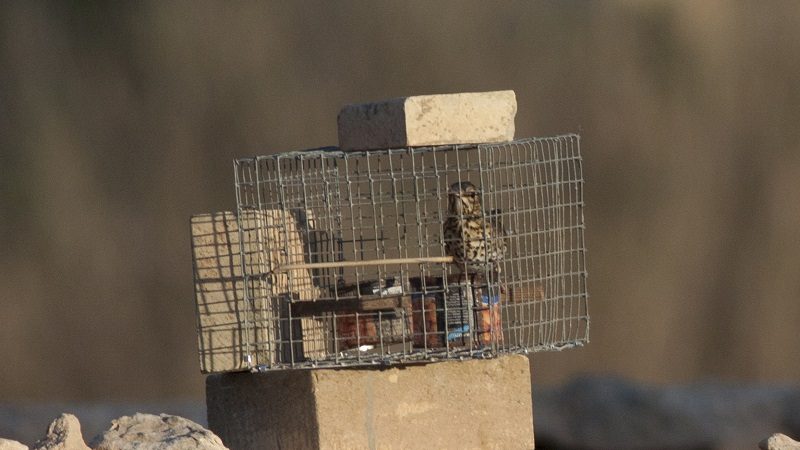BirdLife Malta has written to the European Commission for more information following the announcement by the government that “an agreement had been reached on a derogation” for the autumn trapping season.
The organisation made it clear that it is the national government that implements a derogation, and the Commission then monitors breaches of EU law. Malta does not “acquire a derogation”.
“It is a known fact that the European Commission never agrees deals on derogations with countries, but only asks for justification after these are implemented,” Birdlife said in a statement.
The stand was taken after Parliamentary Secretary Clint Camilleri today announced that the government had reached an agreement with the European Commission to open the season according to “certain parameters and principles”.
Four months ago, the European Court of Justice ruled that finch trapping could no longer take place in Malta – a judgment that was welcomed by the European Commission, which said there was no justification and expected Malta to stop the practice “once and for all”.
BirdLife Malta said it was satisfied that no finch trapping was going to take place and that “this issue has been done and dusted at this point”.
However, “we do believe the European Commission might have been taken for a ride if the Maltese government promised it can control the quotas and ensure they are not surpassed,” it said.
The quotas have been set at 700 Golden Plover and 5,000 Song Thrush between a total of 1,500 trappers who have registered for this year’s season.
This was already a concern for the Commission and BirdLife Malta said it expected it to remain a concern, which could led to a continuation of the infringement process against Malta.
It welcomed the announcement that the list of registered trapping locations would be made public. “This data will be scrutinised to understand the implications of trapping on various habitats including alos public and private land,” BirdLife Malta said.












